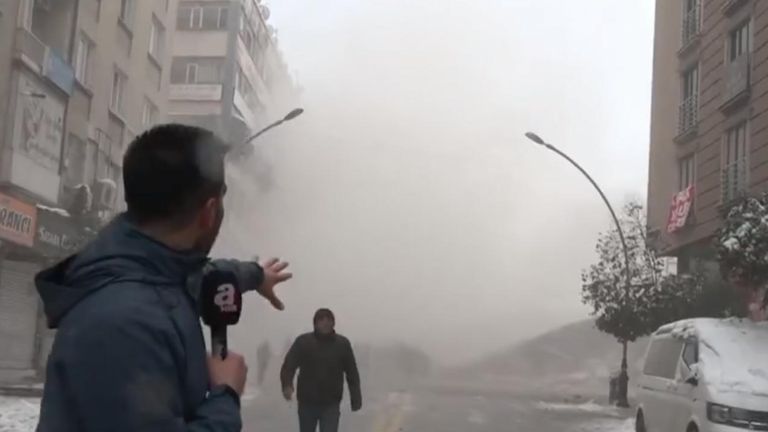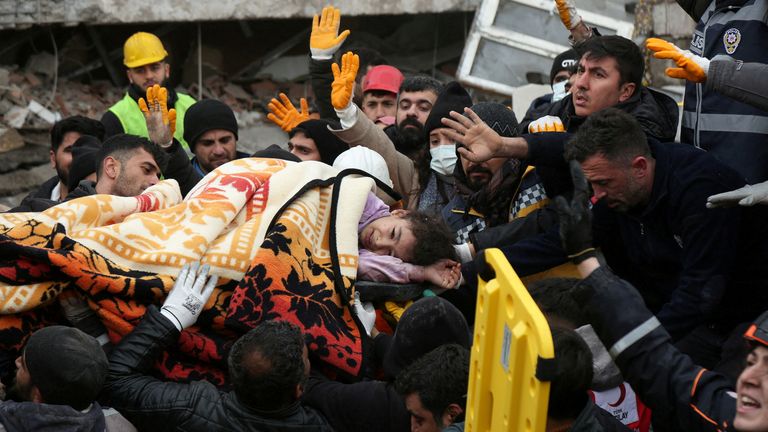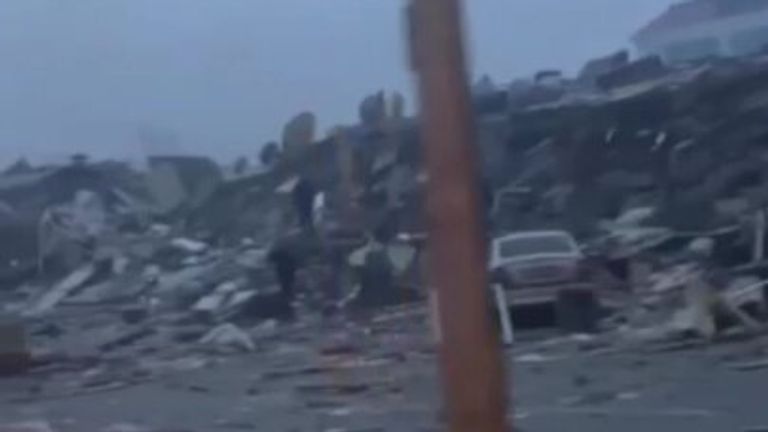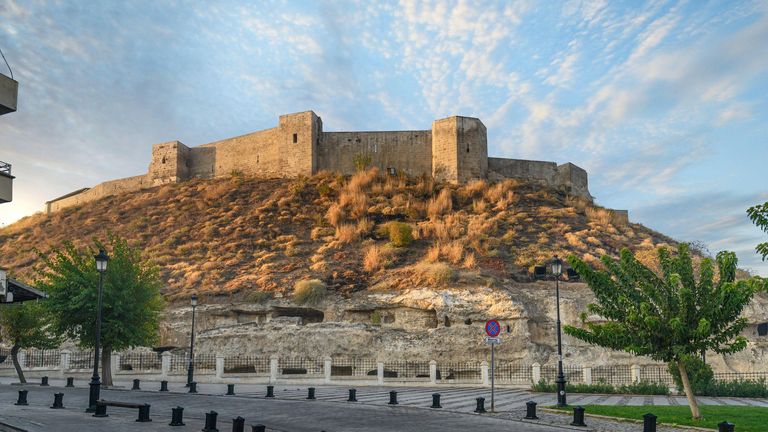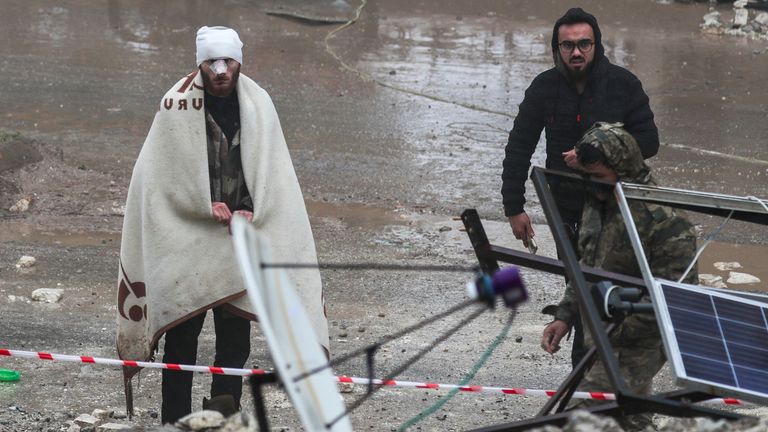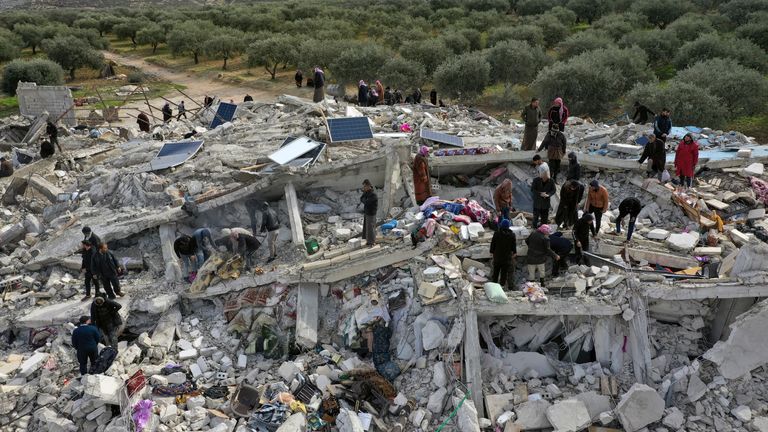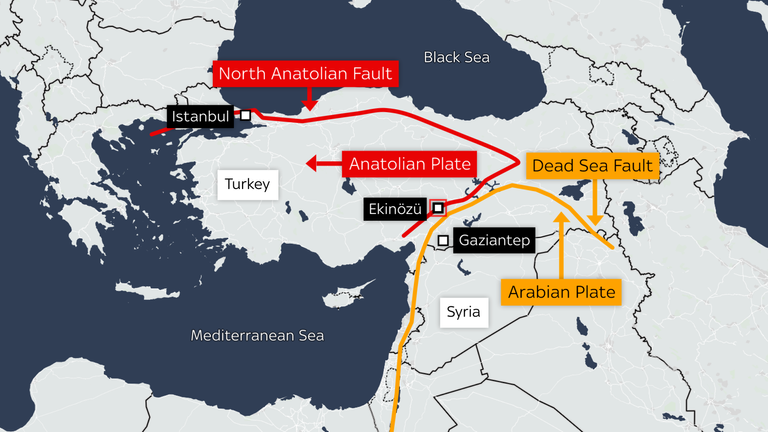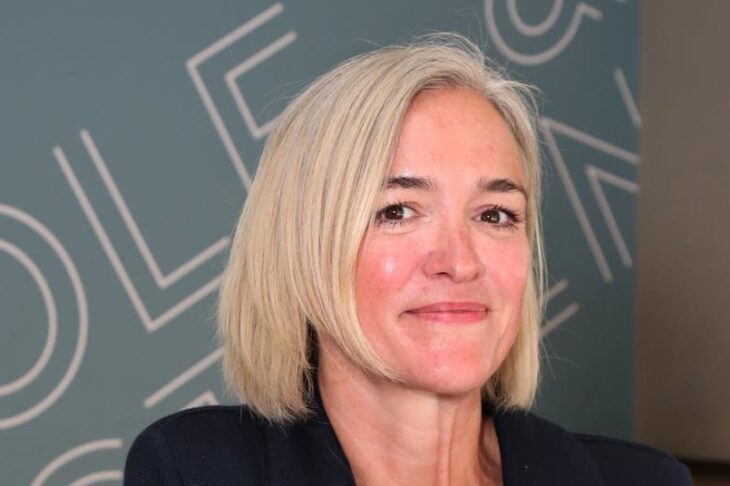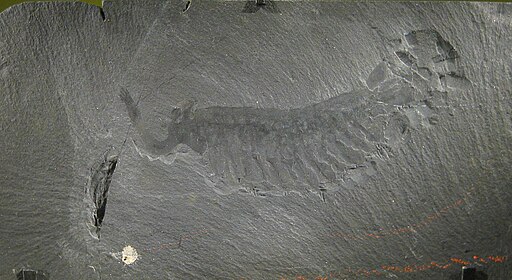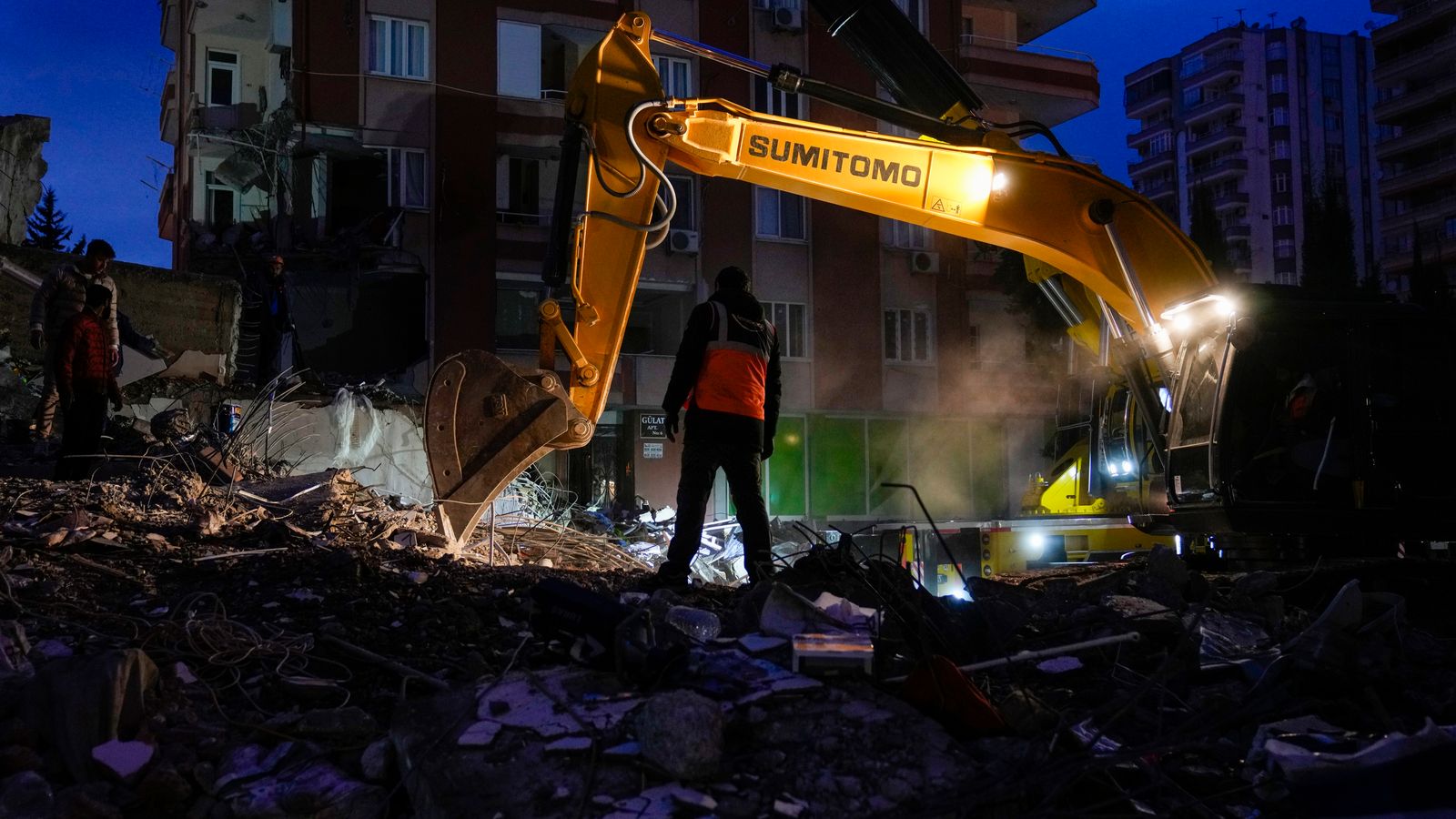
Turkey and Syria earthquake: Frantic rescue efforts continue, as number killed rises | World News
Frantic efforts to rescue hundreds trapped under rubble continue in the dark after a huge earthquake hit southeastern Turkey and northern Syria early on Monday, killing more than 3,500.
The number of dead is expected to rise as rescue workers search the wreckage in cities and towns across the region.
At least 120 aftershocks followed, some hours after the initial 7.8 magnitude earthquake, the Turkish authorities said.
Turkey-Syria earthquake – latest updates
A second earthquake was measured at a magnitude of 7.5.
Emergency workers and residents in cities and towns across the region have been searching for survivors, working through tangles of metal and giant piles of concrete.
A hospital in Turkey also collapsed and patients, including newborn babies, were evacuated from a handful of facilities in Syria.
Recep Tayyip Erdogan, the Turkish president, said: “Because the debris removal efforts are continuing in many buildings in the earthquake zone, we do not know how high the number of dead and injured will rise.
“Hopefully, we will leave these disastrous days behind us in unity and solidarity as a country and a nation.”
Mr Erdogan has also declared seven days of national mourning.
The quake, felt as far away as Cairo, was centred on Turkey’s southeastern province of Kahramanmaras.
It struck a region that has been shaped on both sides of the border by more than a decade of civil war in Syria.
Latest figures from Turkey’s disaster agency show 2,316 fatalities have been recorded in 10 provinces, with some 11,000 injured.
In Syria’s government-controlled areas, a total of 538 people have died.
The Syrian Civil Defence, known as the White Helmets, has confirmed 700 fatalities in opposition-held areas, which are packed with about four million people displaced from other parts of the country by the fighting.
Hundreds of families remain trapped in the rubble, according to the White Helmets.
Strained health facilities and hospitals were quickly filled with wounded, rescue workers said. Others had to be emptied, including a maternity hospital, according to the SAMS medical organisation.
“We fear that the deaths are in the hundreds,” Dr Muheeb Qaddour said by phone from the town of Atmeh, in northern Syria.
Buildings were reported collapsed in a wide area extending from Syria’s cities of Aleppo and Hama to Turkey’s Diyarbakir, more than 200 miles to the northeast.
Nearly 900 buildings were destroyed in Turkey’s Gaziantep and Kahramanmaras provinces, said vice president Fuat Oktay.
A hospital collapsed in the Mediterranean coastal city of Iskenderun, but casualties were not immediately known, he said.
“Unfortunately, at the same time, we are also struggling with extremely severe weather conditions,” Mr Oktay told reporters.
Nearly 2,800 search and rescue teams have been deployed in the disaster-stricken areas, he added.
The US Geological Survey measured Monday’s quake at 7.8. Hours later, a 7.5 magnitude one struck more than 60 miles away.
Read more on this story:
Terrifying video shows block of flats collapse in less than ten seconds
Newcastle United ‘praying for’ former star Christian Atsu
Analysis: This is the worst kind of quake
Why is the earthquake death toll so high in Turkey and Syria?
An official from Turkey’s disaster management agency said it was a new earthquake, not an aftershock, though its effects were not immediately clear.
The quake heavily damaged Gaziantep’s most famed landmark, its historic castle perched on a hill in the centre of the city.
Parts of the fortresses’ walls and watch towers were levelled and other parts heavily damaged.
In Diyarbakir, hundreds of rescue workers and civilians formed lines across a mountain of wreckage, passing down broken concrete pieces, household belongings and other debris as they searched for trapped survivors.
In northwest Syria, the quake added new woes to the opposition-held enclave centred on the province of Idlib.
The opposition’s Syrian Civil Defence described the situation there as “disastrous”, adding that entire buildings have collapsed and people are trapped under the rubble.
In the small Syrian rebel-held town of Azmarin in the mountains by the Turkish border, the bodies of several dead children, wrapped in blankets, were brought to a hospital.
“It was like the apocalypse,” said Abdul Salam al Mahmoud, a Syrian in the northern town of Atareb.
“It’s bitterly cold and there’s heavy rain, and people need saving.”
Mr Erdogan said early on Monday that 45 countries had offered help with search and rescue efforts.
For more detail on the international support click here
Foreign Secretary James Cleverly said the UK government would be “sending immediate support”, with a team of 76 search-and-rescue specialists, equipment and four search dogs being sent to Turkey.
He said: “We have deployed a large search and rescue team with state-of-the-art lifesaving equipment…
“With Syria of course the situation is more complicated. But we have given many years of support to the White Helmets… and will be working through our UN partners on the ground and have increased funding specifically in response to this situation.”
Prime Minister Rishi Sunak tweeted: “My thoughts are with the people of Turkiye and Syria this morning, particularly with those first responders working so valiantly to save those trapped by the earthquake.
“The UK stands ready to help in whatever way we can.”
Turkey sits on top of major fault lines and is frequently shaken by earthquakes.
At least 18,000 were killed in powerful earthquakes that hit northwest Turkey in 1999.
Stephen Hicks, a seismologist at University College London, told Sky News that Turkey and Syria have experienced “the worst kind of earthquake”.
“It’s a very shallow earthquake beneath a highly populated area, a very strong earthquake, and in a region where we can see the buildings just can’t withstand this level of shaking.”
Mr Hicks said there is a “small chance” there could be “stronger aftershocks” or even another earthquake “larger than the main shock”.
